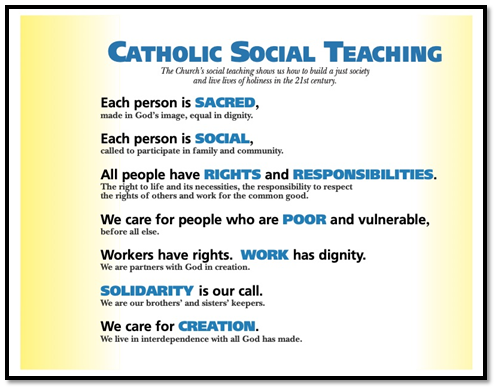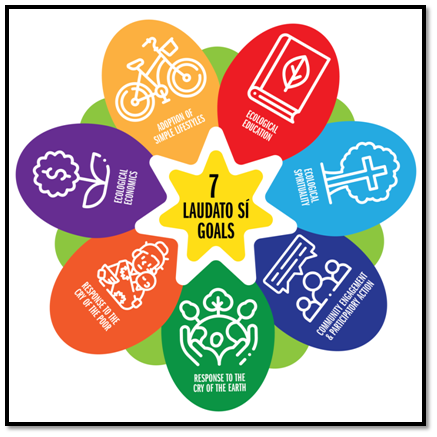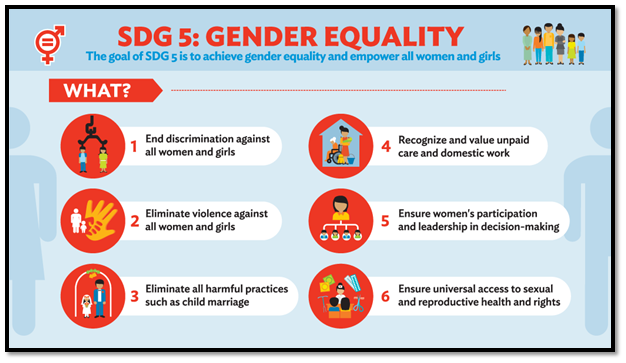Justice And Change Assignment Discussion On Social Thought Concepts
Question
Task: Can justice and change assignments be used to determine social thought concepts among community members
Answer
Introduction
This justice and change assignment investigates social mind sets and factors influencing the issue. Present society has claimed to be the most civilized one with the continuous development in geopolitical, economic, and societal aspects, but there exist serious contradictions which need to be addressed. Thisjustice and change assignment will focus on the social issues pointed out by the Catholic social Thought Principles and their own practices regarding the concerns about protecting and respecting human dignity, the collaboration between different sectors in the society in order to protect the human rights and gender equality initiatives regarding the oppression happening towards the women and girls. The essay will discuss about the social contradictions addresses in the second and third chapter of Laudato Si’, agendas of International Women Development Agency (IWDA) and their sustainable development goals to address gender inequality in Asia Pacific region.
Discussion
Many authors identified on this justice and change assignment that have researched Catholic Social Thought Principles have stated that the most important contribution of Roman Catholic Church culture to the world community during recent centuries can be considered as the development of the thought structure, which is now widely known as the Catholic Social Teaching system(Clark, 2016). The culture has articulated several social issues and the necessary responses. The cultural shifts which have been happening through many years around the world from the time of the industrial revolution in the western developed countries are now being addressed as the roots of many social issues and concerns. The poorer nations are facing most of the discrimination from the developed country, the oppressed section of the society is being more vulnerable, and the gender discrimination happening towards the women and the transgenders are more serious. In 1998, the Catholic Conference happened in the United States has provided a framework to discuss the aims, impacts, and challenges in Catholic Social Teaching, which consisted of several themes such as the dignity of the individual, responsibility to own family, community, and the nation, participation in collective community works, protection of individual human rights, elimination of the discriminations happening towards poorer and vulnerable groups or nations, the rights or every worker from every working sector including women' rights and recognition for domestic works, the dignity of every working status, solidarity towards everyone as well as care for God's every creation.
Since 1960 after the Second Vatican Council, the catholic church's agenda has been focused on the need to promote social teaching widely. As per research on this justice and change assignment, they started to address the social issues and take actions such as mobilizing the resources to assist the economically poorer nations or groups who are in need (Shadle, 2018). As the church claims that every human being is a creation of God, society has the responsibility to ensure that their lives are being protected. The church's social teaching system has addressed racism as an evil one that is still enduring in many societies, although human civilization has achieved advancement. The abolition of the death penalty is also a way followed by the catholic social teaching to promote values of life. The right to life is an important topic as the rights are being denied in many sectors of society in various forms. Discrimination is happening, especially towards weak economic groups or women. The idea of human rights seems to be inherent, but present-day society is facing surprising contradictions.
Some authors have stated that it is apparent that all forms of humanity are moving towards the chronopolitical, geopolitical, and civilization development path, but the goal of social progress along with economic progress has never been attained (Wolfgang Sachs, 2017). As per the theory of geopolitical development identified on this justice and change assignment, it is also established that the first and fast movers, such as the developed nations and countries, are leading humanity, and the diverse population across the globe has now been marked as the rich and poor nations. From the point of view of civilization development, it is now clear that the so-called development of a country or nation is now being measured by the degree of the country's social and economic performance. In the Encyclical announcement of Laudato Si' in June 2015, Pope Francis declared some of his points of view regarding the sustainable development goals and issues, and the wider population of this planet paid attention to his opinions (Sachs, 2017). As he is Argentinian, his views brought some Latin American perspectives to the issues worldwide (Bucklay, 2022). Laudato Si' consists of a declaration about mutual dependency as the announcement have covered a lot of issues, including the destruction of creation happening in the whole world and the unjust order or the individual responsibility towards each other(laudatosiactionplatform.org.2022). The document has suggested a strategy to make the world better by following a sufficient cultural change that needs the participation of the rich nations, mostly as the wealth needs to be distributed, not the poverty (Miller, 2017).
'The 2030 Agenda for Sustainable Development has issued its agenda as not leaving anyone behind, especially when it comes to women empowerment and gender equality (Franco et al., 2020). The 'Sustainable development goal 5' (SDG 5) has been devoted to women and girls who are marked by the UN 2016 as the 'still threatened group to be left behind. Among the 1 to 17 SDG goals, only one is related to gender equality though, though the SDG 5 has interpreted this incident as a decreased level of commitment regarding the issues women are regularly facing in the whole world compared to how their issues are being addressed in Millennium Development Goals (Kim, 2017). Although the agendas described in the goals and announcements of MDGs have been devoted to the equality agenda based on gender and the concerning discrimination happening toward women, the agendas are limited to giving women and girls the access to education and the knowledge necessary to reduce the mortality rate during the maternal period (MagdalenaWilczek-Karczewska et al., 2020). On the other hand, Sustainable Development Goal 5 is focused on gender equality, particularly the elimination of any kind of bias or inequality based on gender in the educational field; malnutrition of lactating and pregnant women, access of women and girls to the reproductive and sexual healthcare-related systems which can include family planning, promoting secure workplace environment for working professionals, especially for the working women coming from migrant families or diverse culture or backgrounds, safe and secure public transportation system, and access to necessary sanitation system and hygiene which might need special attention for the women with special needs during special life course (Agarwal, 2018). The agenda of Sustainable Development Goal 5 of this justice and change assignment has recognized the urgency of preventing the violence happening around the world based on gender and early marriages, as the women's rights need to be ensured, and they need to have the necessary access to the economic resources like ownership of property and responsibility of managing. Women's unpaid work in the domestic field needs to be properly valued and recognized. Development policies also need the impacts of using gender mainstreaming to address the most problematic areas regarding gender inequality (Griggs et al., 2017).
International Women Development Agency (IWDA) is the leading organization in Australia that is entirely focused on the agendas related to women's rights and gender equality (Pritchard, 2020). As per research done on this justice and change assignment, the agency works as an international, independent one with influences from feminist theory. The vision of the agency is about establishing a safe and secure environment for women and girls where they can have gender-neutral access to equal rights and opportunities in every field. The agency has a partnership with other agencies with the agenda of establishing gender equality situated in the Asia Pacific region. The agency has been vocal about the issues of power, security, and money faced by women throughout their journey. The agency was founded in 1985 to protect women's rights and address the issues regarding being beneficiaries or property and decision-makers in the development process (Shetty & Campaign, 2006). All areas of development need to be enhanced by using the capacity of every sector of the society, including women and the overall human rights, as the development of every sector is the basic priority of the core development program. The agency has been working in 36 countries and regions with 194 program partners throughout their 30 years long historical journey. All their projects and programs are being managed by women leaders who live and work in the underdeveloped communities themselves to understand the practical issues and gain some innovative perspectives. The agency has also expanded its working programs for LGBTQ communities in recent years. Educating every human being in the society about equal human rights for everyone as well as the importance of protecting human dignity and providing assistance for those in need is a challenging task (Behr, 2019). Since many people tend to focus on individual comfort and well-being, it is necessary to draw public attention to the need for the common good in order to increase the awareness about the discrimination happening all over the world towards the oppressed sections of the society or the developing countries (Christie et al., 2019). Catholic Church Social teaching is trying to follow the method of community teaching so a vast population can join or pay attention.
Conclusion
Laudato si announced by the Pope himself,has already shown that the sustainable development goals cannot be achieved by individual nations or countries, as most the developing countries are still in need of economic assistance. The oppressed sections of the society, may it be the poor section or the discriminated gender groups, the Catholic Social thoughts and principles help mankind to think and respect everyone as the creation of God; thus, the rights of everyone need to be protected. Gender inequality is prohibiting a larger sector of women from gaining equal power and access to the necessary services such as education and hygiene. This justice and change assignment observed that many NGOs and private as well as government initiatives are coming forward to voice their concerns about the discrimination women, and female workers are facing every day.
Reference List
Agarwal, B. (2018). Gender equality, food security and the sustainable development goals. Current opinion in environmental sustainability, 34, 26-32. [Retrieved on 15TH May, 2022] [Retrieved from https://www.sciencedirect.com/science/article/pii/S1877343517302415casa_token=aY18jADIlhEAAAAA:BTT56
X1ghKihxdBXsUiWdskRVdAcjsuvpbtH3uoOTpEhapQVScGY2hAxRJPI181icqILO_iB]
Behr, T. C. (2019). Social justice and subsidiarity: Luigi Taparelli and the origins of modern Catholic social thought. Catholic University of America Press.justice and change assignment [Retrieved on 15TH May, 2022] [Retrieved from https://books.google.fr/bookshl=en&lr=&id=1gbQDwAAQBAJ&oi=fnd&pg=PR5&dq=behr+2019+social&ots= n1kg_BkEFC&sig=qQTgMlXJwtImMj3QUOT6DbCx4sQ&redir_esc=y#v=onepage&q= behr%202019%20social&f=false]
Buckley, D. T. (2022). Religious Elite Cues, Internal Division, and the Impact of Pope Francis' Laudato Si'. Politics and Religion, 15(1), 1-33. [Retrieved on 15TH May, 2022] [Retrieved from https://www.cambridge.org/core/journals/politics-and-religion/article/abs/religious-elite-cues-internal-division-and-the-impact-of-pope-francis-laudato-si/6C695AC2C08AC2490277520862981113]
Christie, I., Gunton, R. M., & Hejnowicz, A. P. (2019). Sustainability and the common good: Catholic Social Teaching and 'Integral Ecology'as contributions to a framework of social values for sustainability transitions. Sustainability Science, 14(5), 1343-1354. [Retrieved on 15TH May, 2022] [Retrieved from https://link.springer.com/article/10.1007/s11625-019-00691-y] Franco, I. B., Meruane, P. S., & Derbyshire, E. (2020). SDG 5 Gender Equality. In Actioning the Global Goals for Local Impact (pp. 69-83). Springer, Singapore. [Retrieved on 15TH May, 2022] [Retrieved from https://www.researchgate.net/profile/Natalia-Cano/publication/337259356_SDG_6_Clean_Water_and_Sanitation_Sustainable_Use_of_Energy_and_ Water_Resources_in_the_Mining_Sector_A_Comparative_Case_Study_of_Open-Pit_and_Alluvial_Mining_Technology/links/5e259d25299bf1cdc4d56924/SDG-6-Clean-Water-and-Sanitation-Sustainable-Use-of-Energy-and-Water-Resources-in-the-Mining-Sector-A-Comparative-Case-Study-of-Open-Pit-and-Alluvial-Mining-Technology.pdf#page=78]
Griggs, D. J., Nilsson, M., Stevance, A., & McCollum, D. (2017). A guide to SDG interactions: from science to implementation. International Council for Science, Paris.justice and change assignment[Retrieved on 15TH May, 2022] [Retrieved from https://pure.iiasa.ac.at/id/eprint/14591/1/SDGs-Guide-to-Interactions.pdf] Kim, E. M. (2017). Gender and the sustainable development goals. Global Social Policy, 17(2), 239-244. [Retrieved on 15TH May, 2022] [Retrieved from https://journals.sagepub.com/doi/full/10.1177/1468018117703444 casa_token=-kc58TJYsJoAAAAA:E3r4Nba_JVgRpvLnq02aj1BoOR6Jk5jeca3rTmSklwEATSMzrTm6od7jDhRlMM3o-WRa72rN1co] laudatosiactionplatform.org. (2022). Laudato Si' Action Platform. Retrieved 15 May 2022, from https://laudatosiactionplatform.org/). MagdalenaWilczek-Karczewska. “Combating legal and cultural forms of discrimination against women from the point of view of Catholic social teaching,” in Sustainable Development Goals and the Catholic Church: Catholic Social Teaching and the UN’s Agenda 2030, ed. Katarzyna Cichos et al. (London: Routledge, 2021) 72–86 [Retrieved on 15TH May, 2022] [Retrieved from https://books.google.fr/bookshl=en&lr=lang_en&id=jhMHEAAAQBAJ&oi=fnd&pg=PA72&dq=Wilczek-Karczewska&ots=_ToEj3oF3h&sig=ASM65AbvO7n5pD4TLO8Xp1TynPk&redir_esc=y#v=onepage&q=Wilczek-Karczewska&f=false]
Meghan J. Clark, “Seeking Solidarity for Development: Insights from Catholic Social Thought for Implementing the UN Agenda,” Journal of Catholic Social Thought 13 (2016) 311–328. [Retrieved on 15TH May, 2022] [Retrieved from https://d1wqtxts1xzle7.cloudfront.net/49343681/Clark.JCST.SolidarityFramework-with-cover-page-v2.pdf Expires=1653559072&Signature=BZTId~aLrXCdt9hF3TauLtYYimiWg4TB7H1WWjFXYklzajkf8Ohs1TXxG-vO7wVm-BbwIZcaeWoiPPusfluUV9MinGDHDSyBzNJoSvZGvI9400gmcozSE63ympGkTwbTNrfFXmD7VcIPd3QG7-SHFajxJ2BnfU22I1uvMI5L1NHnAV851U1taKv8HeDRlzNhbjKS83PiU0KzRIL5t2a8ABazwkJTVQvZaEr8f CrvruCAKQBz7N-ncD5S97lCqmGiOV8B0O90QXTOqjZ5gGYZOV0cRx~iaZMvN34Lz9m49LOqwud8Y9-SiMoXO6WNbec-luIsYDe2gYAJOmAkHeKjkw__&Key-Pair-Id=APKAJLOHF5GGSLRBV4ZA]
Miller, V. J. (2017). The theological and ecological vision of Laudato Si': everything is connected. Bloomsbury Publishing. [Retrieved on 15TH May, 2022] [Retrieved from https://books.google.fr/bookshl=en&lr=&id=1JcmDwAAQBAJ&oi=fnd&pg=PR1&dq=miller+The+theological &ots=M8_OkS2Yv0&sig=aGxRtzm2BZ0yiJk0RhdYxgeT5W0&redir_esc=y#v=onepage&q=miller %20The%20theological&f=false]
Pritchard, J. (2020). Prevention of Sexual Exploitation, Abuse and Harassment Policy.justice and change assignment[Retrieved on 15TH May, 2022] [Retrieved from https://policycommons.net/artifacts/1753456/prevention-of-sexual-exploitation-abuse-and-harassment-policy/2485647/]
Shadle, M. A. (2018). Interrupting capitalism: Catholic social thought and the economy. Oxford University Press. [Retrieved on 15TH May, 2022] [Retrieved from https://books.google.fr/bookshl=en&lr=&id=_mdaDwAAQBAJ&oi=fnd&pg=PP1&dq=shadle+2018+catholic&ots =GkV4Uo1PYy&sig=wirvu77-tBep7Lyli96pGl_-EvA&redir_esc=y#v=onepage&q=shadle%202018%20catholic&f=false] Shetty, S., & Campaign, M. (2006). Engendering a new millennium: Framing the struggle for women's empowerment within the context of the Millennium Development Goals. iwda, 23.justice and change assignment[Retrieved on 15TH May, 2022] [Retrieved from https://openresearch-repository.anu.edu.au/bitstream/1885/112718/84/DevelopmentBulletin-71_2006.pdf#page=27] Wolfgang Sachs, “The Sustainable Development Goals and Laudato Si’: varieties of PostDevelopment,” Third World Quarterly 38 (2017) 2573–2587.[Retrieved on 15TH May, 2022] [Retrieved from https://www.tandfonline.com/doi/pdf/10.1080/01436597.2017.1350822casa_token=sdYAgC4CDj4AAAAA: bVbVsbM5K0xqgV-GVmZna-DOihfe1GAupdVfZTlMr9frUsEvz6LERpmRGT3i2kjmtVVbI-otv3U]
Appendices
Appendix 1: Catholic Social teaching

Appendix 2: 7 Laudato Si goals

Appendix 3: SDG 5Gender equality













